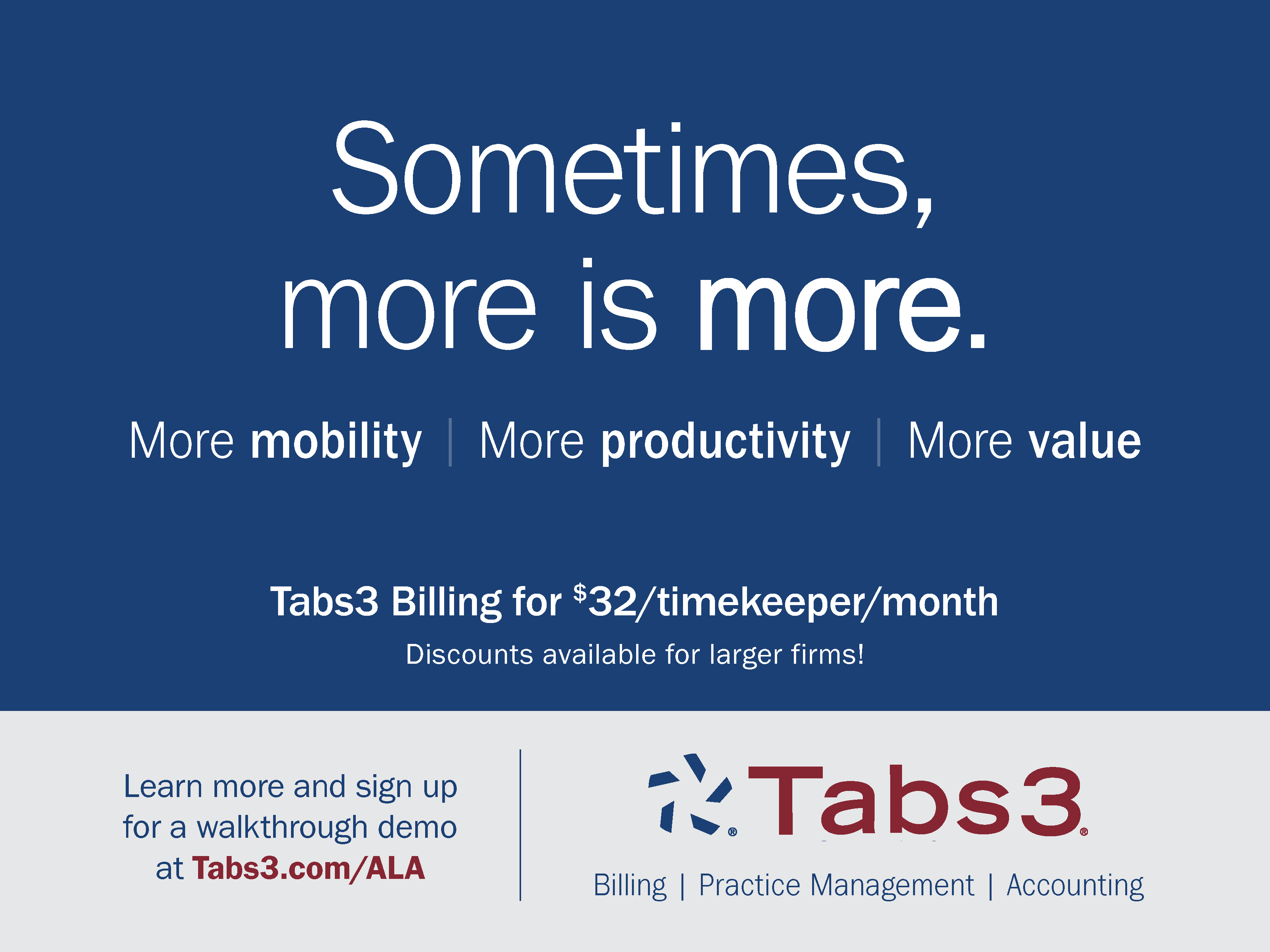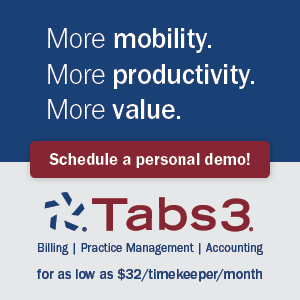As the public focuses more on social issues, it’s natural that some clients will be looking for examples of how your firm is being socially responsible. A closer look at what some firms are doing uncovers a variety of ways that firms can work more closely with clients, enhance recruitment and diversity efforts, and make a direct impact in the community.
Davis Wright Tremaine LLP has deep roots in giving back. To further expand and reflect the sophistication of its efforts, the firm recently hired Joanna Plichta Boisen as its first Chief Pro Bono and Social Impact Officer. She says the firm supports a diverse range of important causes.
“Giving back always has been a core value at the firm,” says Boisen. “The firm has had a pro bono program almost since its founding. We are proud that we can be the voice for the unheard, the champion for the unseen and the access point to the justice system for the most vulnerable and marginalized.” Her four-person department works across practice groups and departments to create entrepreneurial pro bono and community initiatives that involve clients and diverse communities.
“With so many people newly out of work or underemployed, [Novack and Macey LLP] naturally identified hunger as one of the greatest needs and responded by making our largest-ever donation to the Greater Chicago Food Depository.”
At Hanson Bridgett LLP, corporate social responsibility efforts are organized through various internal firm committees, including its Pro Bono, Diversity and Inclusion Network; Women’s Impact Network; and Real Action Calling for Equity (RACE) Task Force. “Each has its own budgets to manage community activities,” says Rachel A. Patterson, Director of Office Operations.
The firm’s Charitable/Community Service Task Force monitors its charitable giving and approved volunteer opportunities. Staff members also participate in community efforts. “The firm matches 100% of personal contributions from staff members and nonpartner attorneys to qualified organizations up to $1,000 per individual,” says Patterson. “This year, we also will be matching donations to Black Lives Matter charitable organizations, and when warranted, we will match donations made to natural disasters (e.g., California wildfires).”
REAL-TIME RESPONSES
The pandemic and social unrest of 2020 made us all give pause and reflect. It also prompted a range of responses designed to support employees and the community.
Novack and Macey LLP endorsed and facilitated remote work for virtually all partners and employees. But that was just the start — the firm made efforts to help the community, too.
“We recently initiated a diversity and inclusion committee to provide a forum for addressing those issues at the firm and in our community engagements,” says Stephen Siegel, Co-Chair of the pro bono practice. “And with so many people newly out of work or underemployed, we naturally identified hunger as one of the greatest needs and responded by making our largest-ever donation to the Greater Chicago Food Depository.”
Patterson says that Hanson Bridgett developed a COVID-19 Resource Center — an online toolkit designed to help clients confront and address legal issues arising from the pandemic. The toolkit, supported by a multidisciplinary team, includes daily client alerts to help clients navigate the rapidly evolving situation. Supporting staff employees also was a key priority.
Boisen says Davis Wright Tremaine also created a dedicated portal where attorneys and staff could identify pro bono and social impact opportunities where they could partner with various organizations to support communities impacted by the pandemic.
“[Hanson Bridgett LLP] matches 100% of personal contributions from staff members and nonpartner attorneys to qualified organizations up to $1,000 per individual. This year, we also will be matching donations to Black Lives Matter charitable organizations, and when warranted, we will match donations made to natural disasters.”
Following the killing of George Floyd, Hanson Bridgett created the RACE Task Force to address Black Lives Matter issues and firm initiatives in their immediate communities. “We held a virtual town hall that allowed everyone to share — in a very real and personal way — how discrimination has impacted their lives,” says Patterson.
The Minneapolis office of Fredrikson & Byron P.A. quickly mobilized one day after some protests turned to riots, with staff members making a direct impact in the hardest hit neighborhoods. “We created a rapid response legal program to assist small, minority-owned businesses that were damaged or destroyed,” Pamela J. Wandzel, Director of Pro Bono & Community Service, who leads initiatives with support from a pro bono service coordinator and the firm’s foundation. “This was an all-hands effort. Attorneys, staff, clients and families joined together to support the community. One lawyer organized a food and supply drive and recruited clients to provide food. Lawyers, staff and their families also attended and helped.”
CHOOSING CAUSES AND ENCOURAGING COMMUNITY ENGAGEMENT
While current events have sparked recent initiatives, most firms have underlying, core objectives that guide their social responsibility programs.
Although Fredrikson & Byron does not have a formal corporate social responsibility program, Wandzel says, “there is an understanding that pro bono provides opportunities for diverse lawyers to give back, but also — and importantly — work on social and racial justice issues that make stronger and more diverse communities.”
To encourage and materially support social responsibility efforts, Novack and Macey pro bono hours are considered equal to paying-client billable hours in determining compensation, says Siegel. “Likewise, as with other client engagements, every pro bono effort is supervised by a partner. Also, our pro bono commitment is supported by the marketing team and support staff to stay on track.”
Hanson Bridgett focuses on the “world around us,” according to Patterson. “The firm has a deep commitment to the environment, and sustainability is ingrained in every aspect of our business and shared with many of our clients. Our goal is to support our community’s safety net programs: diversity, education, economic and social advancement, environment, health and social services.”
Turning to local nonprofits that specialize in specific causes might be a good place to start. Wandzel says it’s also important to understand the role these can play in identifying new opportunities. “Listen to them, learn how they work with law firms and find out what they need. The job is difficult. You need to be flexible, have the ability to talk with people versus at people.”
BE PROACTIVE
Barrie K. Handy, Davis Wright Tremaine’s Social Impact Senior Manager, suggests creating a social responsibility plan in concert with and in direct support of the firm’s overall strategic plan. “Identify team members who are passionate about the work, can operate in a very fast-paced environment, possess an entrepreneurial spirit, and can effectively project manage. And execute, execute, execute!”
If your legal organization is looking to get serious about its social impact in 2021, the Legal Sustainability and Social Impact (Legal SASI) movement is a good place to start. This free resource launched in September in response to growing interest in social responsibility by the legal profession. The founders of the Legal SASI observed a growing need for formalized social responsibility strategies in law firms, as these are measures clients will be looking for from their legal representation.
“More clients are requiring firms to articulate their social impact commitment as part of the [request for proposal] and vetting process,” says Catherine Alman MacDonagh, JD, a Co-Founder of Legal SASI. “Being in a LEEDS building [or] having recycling bins or a pro bono program is not going to be enough.”
“In collaborating with clients to do the right thing, the legal ecosystem is in a unique position — and exerts tremendous influence — in addressing societal challenges. After all, businesses cannot survive in societies that fail.”
MacDonagh says a diverse group of lawyers, administrators, marketers and consultants launched this movement to share information, resources and best practices on interconnected issues, including corporate social responsibility (CSR), environmental and social governance (ESG), as well as racial justice and health and educational disparities.
To make connections and share information, Legal SASI has a LinkedIn page and a benchmarking survey that will help shape programs, resources and communications platforms.
Legal SASI Co-Founder Pamela Cone, the author of Creating Social Impact: How Your Firm Gains by Adopting a Socially Responsible Business Strategy, adds: “In collaborating with clients to do the right thing, the legal ecosystem is in a unique position — and exerts tremendous influence — in addressing societal challenges. After all, businesses cannot survive in societies that fail.”
WIN-WIN
In addition to connecting with and contributing to the betterment of a community, a formal social responsibility program impacts how the public, clients and potential recruits perceive the firm. A focused program can elevate the firm’s reputation and brand within and outside the firm — setting it apart from the pack, underscoring a more personal approach and results-oriented connection with the public, and strengthening relationships that build morale and team building.
Since social responsibility efforts often intersect with other firm areas — notably diversity and recruitment — it pays to join forces with them in developing programs. Boisen’s team worked with her firm’s diversity and inclusion department to create a new Pre-Law Diversity Fellowship Program to help expand the talent pipeline. It also developed a program during Asian Pacific American Heritage Month that explored anti-Asian racism and the challenges faced by the Asian community during the pandemic.n
Recruitment is another area that can help in leveraging a sophisticated social responsibility program. Committing to social responsibility can attract new lawyers and staffers, as well as help retain talent. In particular, Millennial lawyers increasingly seek out firms that are committed to diversity and inclusion, with strongly expressed social values and with broad opportunities to contribute to and make impact in their communities.
Clients may offer a good model and strong case for instituting a formal social responsibility program. The business world has been much quicker to understand the value of embracing social responsibility initiatives since consumers often favor companies that look beyond profits. While a major investment, taking an active role in the community and collaborating with clients on social justice and civic engagement efforts can be a beneficial proposition in terms of building firm morale and client relations, leveraging community goodwill and providing extra value.
“We do work that changes lives for the better, improves the legal system, creates good precedent and balances the scales of justice,” says Boisen.


